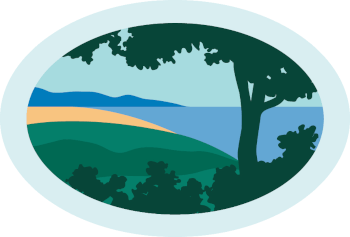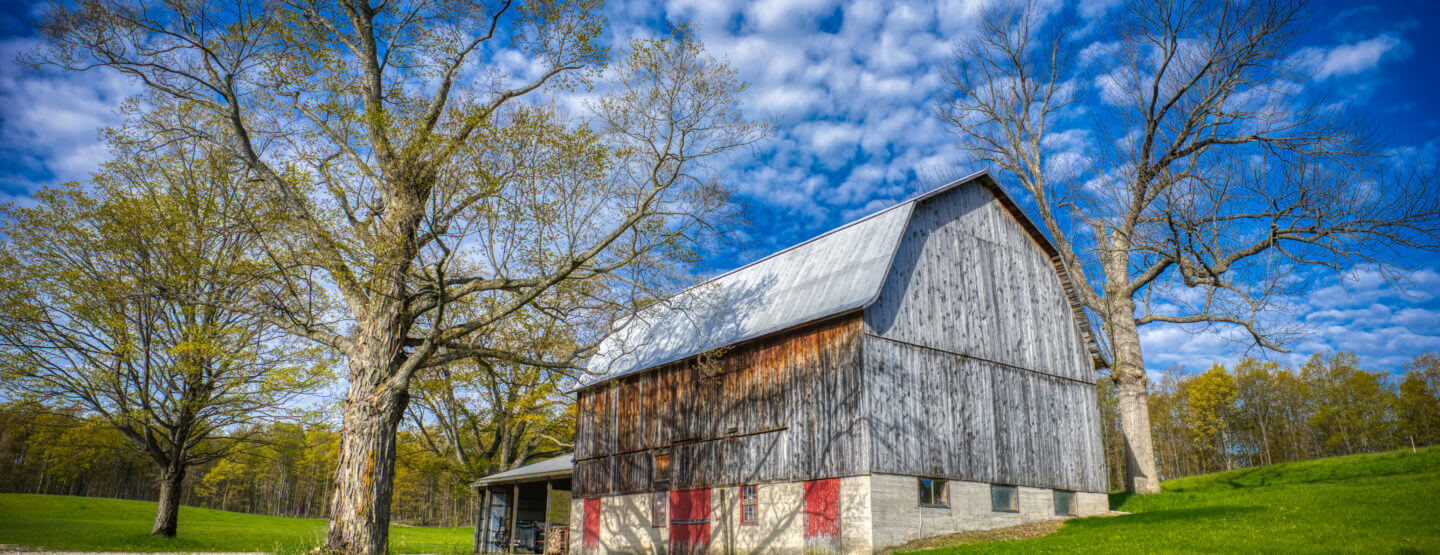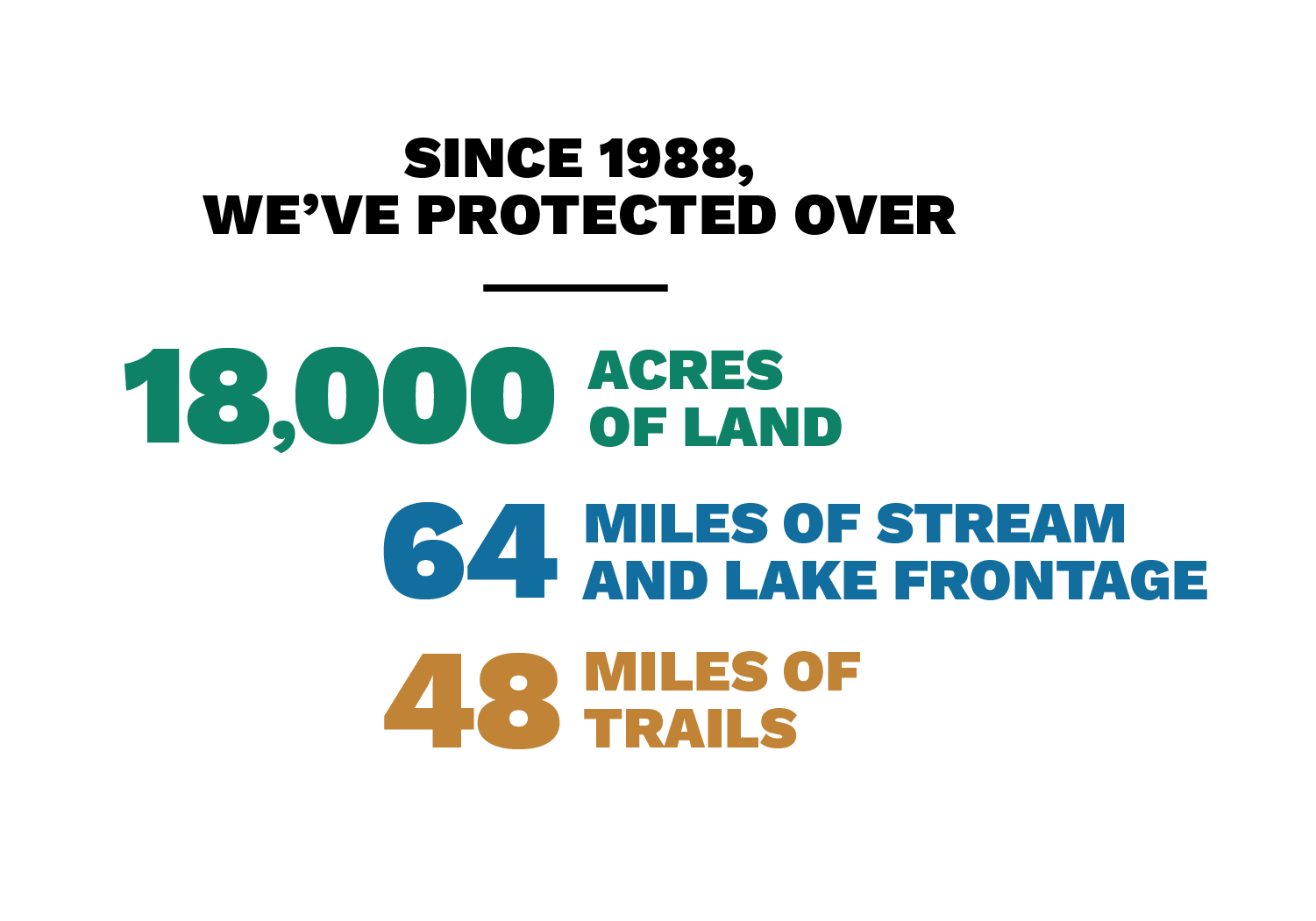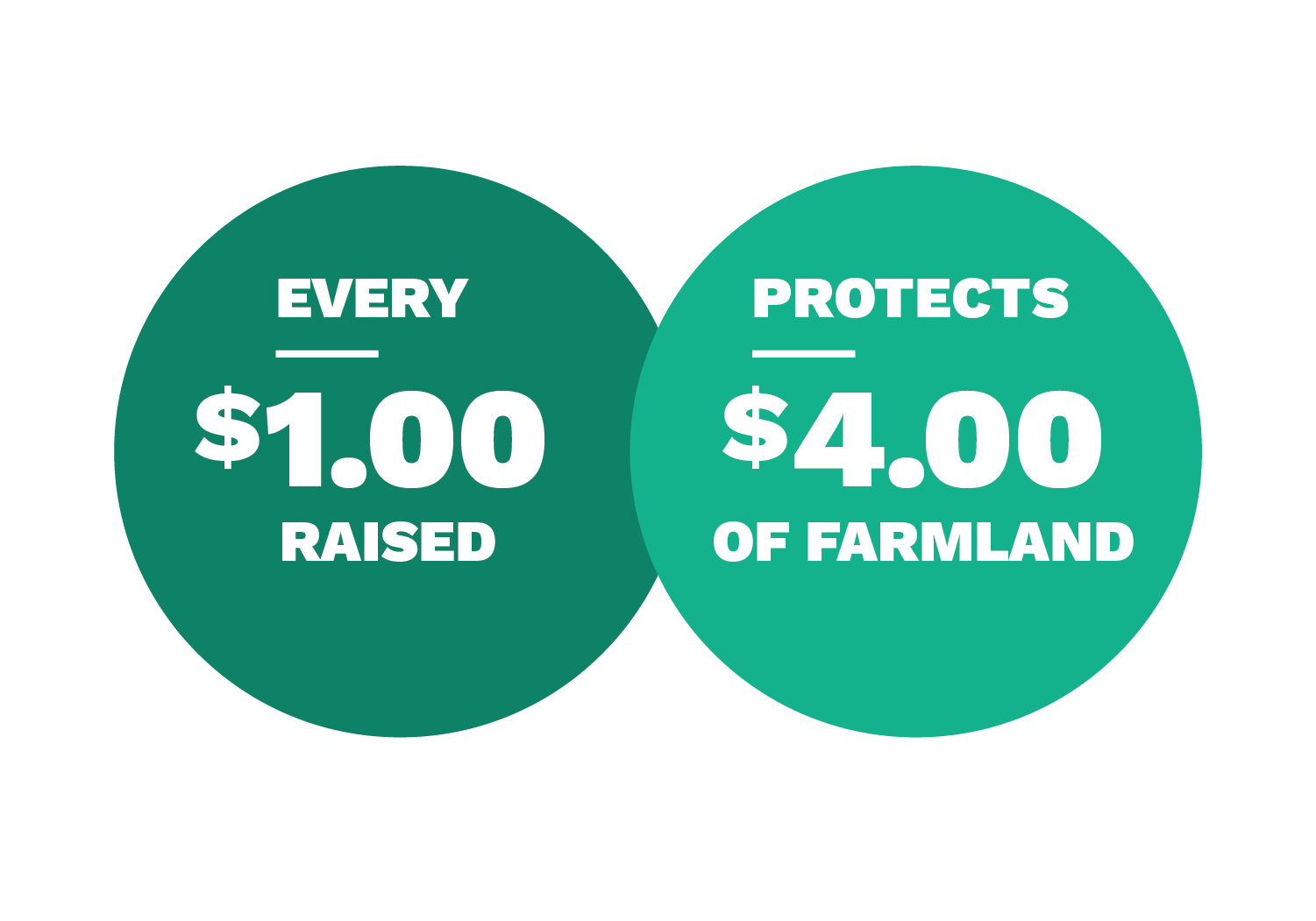When the Leelanau Conservancy protects family farms, we often talk about the land as a globally rare resource that is perfect for growing stonefruit. We identify streams and towering hardwood forests, which protect water quality and help to battle climate change. We celebrate and photograph the scenic views that will never change. We adore our local foods and charming farm stands and care deeply about preserving a way of life, and a part of the local economy, that will forever be available to future generations of farmers.
Whispering from these lands are also the ghosts of farmers’ past, and incredible stories of those who journeyed to Leelanau from faraway places as long ago as the 1800s. Known as “homesteaders,” these earliest settlers led a hardscrabble and sometimes tragic life.
Such is the case with the Schettek family, who earlier this year preserved an extraordinarily beautiful 90 acres with a conservation easement. This Kasson Township farm just south of Maple City was a fourth-generation farm. Livestock was raised here as well as potatoes, corn, and hay.
We spoke with brothers Bob and James Schettek, the oldest and youngest of five siblings, who say that they are simply carrying out their parents’ fervent wish to “keep the farm as natural as it could be,” says Bob.
“They did not want it to be subdivided as so many large tracts of land have been. Their mother, Arlene, 85, is still living. Their father Paul Schettek, died in 2017 at age 94.
Paul inherited the land from his parents, John and Helen Schettek, who were the first to farm there, having purchased the land between 1914 and 1922. John built the beautiful barn on the property and is known for having built other barns in Leelanau, including the beloved and recently restored Poor Farm barn, located at Myles Kimmerly Park in Kasson Township.
Tragically, John died from pneumonia in 1927. He was only 49, and left Helen with seven children. Bob and James’ father Paul was among the youngest– just four years old when his father died.
Helen managed to carry on, farming potatoes and hauling them with a horse and buggy to the railroad depot in Cedar to be shipped out to city markets. She also sold timber off the property. She was also an avid gardener, growing flowers and vegetables. Paul quit school after the 8th grade, helping his mother to farm and raise livestock.
Helen never remarried and lived in the rustic old house on the property until she died in the early ‘70s. She enjoyed electric lights but had no indoor plumbing for her entire adult life. “She did her laundry by hand, and had a cistern well,” says James.
After Helen died, Paul and his older brother inherited the land. Paul married Arlene and they built a new home near Helen’s, living in the basement until the main story could be added five years later. By then he had taken a full-time job driving a truck for Concrete Services in Traverse City, where he spent 28 years. Arlene raised their five children, baked cakes for weddings, and cleaned cottages for the summer people on Glen Lake.
Both James and Bob have great memories of growing up on the now preserved land. “We were so active, always outdoors,” says James, 48. “There were no computer games. We had a treehouse and forts and a great sledding hill,”—a hill his own two children have also enjoyed.
James, the youngest, recalls helping his dad to cut firewood they supplied to The Homestead and to a meat market in Cedar for their smokers. 160 cords lined their long driveway. “Then as now, we managed the woods really well,” says James. “We cut up fallen trees and/or harvest less desirable species.”
“The family has been great stewards of the land,” says Kim Hayes, Director of Easement and Farm Programs, who worked with the Schetteks to preserve the land. “In addition to this fertile farmland, two-thirds of the property also contains a large forested area. There is a fantastically beautiful ephemeral pond and wetland. The forestland is full of wildflowers in the spring.” A classic and well-cared-for barn is visible from Maple City Highway.
Like many other farms that the Leelanau Conservancy has protected, the Schettek project demonstrates once again what might be lost if these lands were to be paved over. The endless and renewable promise of food production, the ecological value of what the land enables, and a very way of life, past and present, that could be extinguished.
“Our parents very much wanted to see the land protected,” says Bob. “Lots of wonderful memories have been made here over four generations and with Mom and Dad’s help that will continue.”
What is a Conservation Easement?
Private lands like the Schettek farm are protected with a legal agreement known as a conservation easement—a somewhat confusing term because the word “easement” can sometimes denote access, which is not the case. All of the private lands that the Conservancy has protected with conservation easements are not open to the public and remain in private hands. This legal tool restricts development on the land, protects its natural features and each agreement is tailored so that it does what is best for the landowner and the land.
Funding: the Schettek family donated 50% of the conservation easement fair market value. Federal farmland funds through the Regional Conservation Partnership Program of the Natural Resources Conservation Service provided 50% of the cost, and donations from our wonderful supporters made up the remaining 25%.




